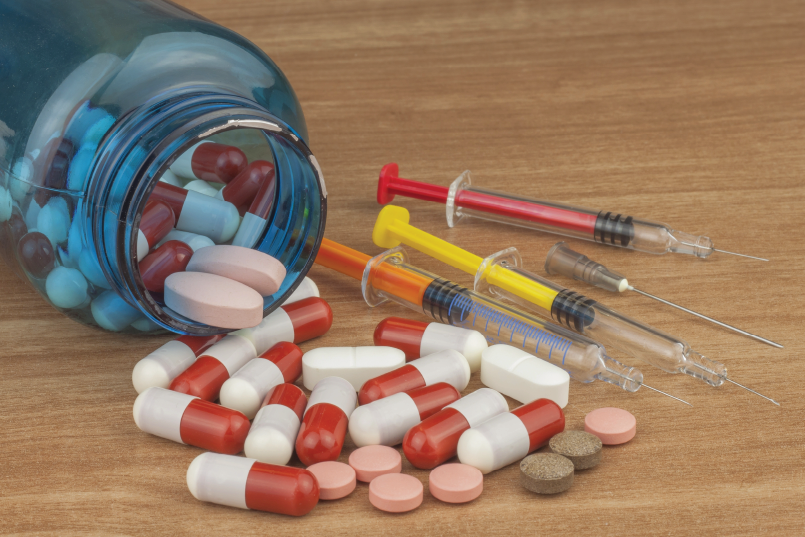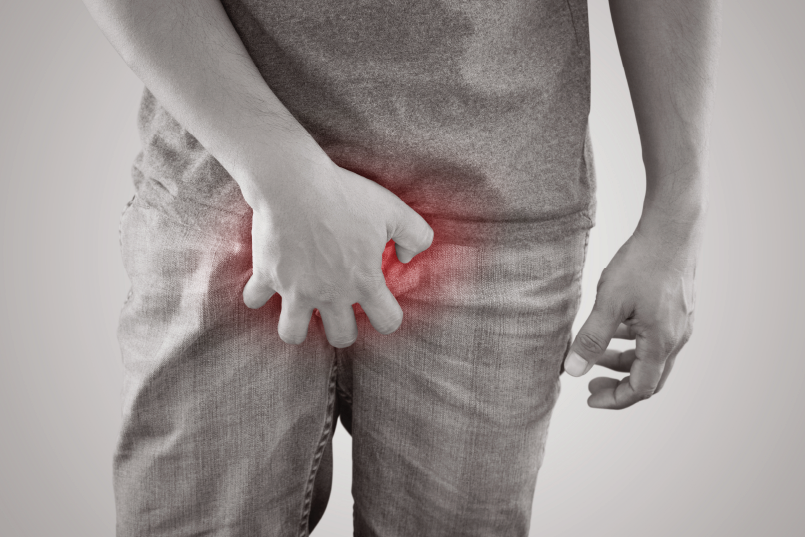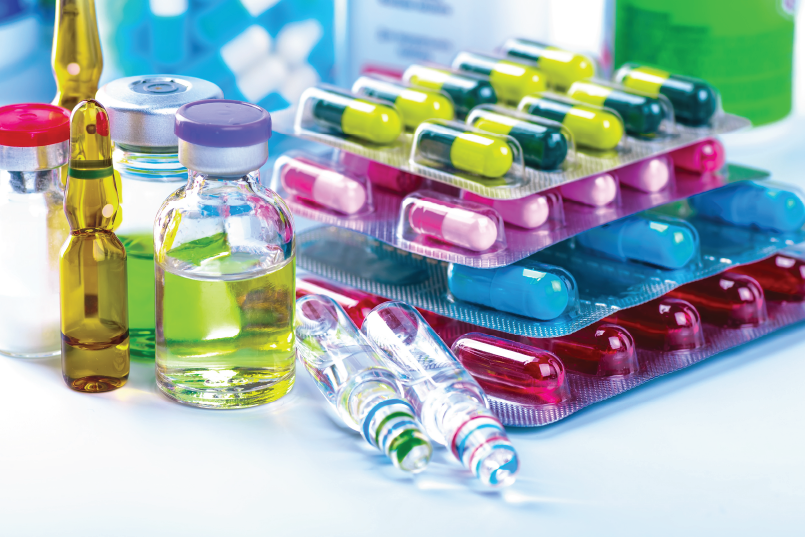Blog > How Steroids and Testosterone Supplements Can Decrease Fertility in Men

How Steroids and Testosterone Supplements Can Decrease Fertility in Men
Testosterone and steroids

Effect of exogenous testosterone and steroids on male fertility

Exogenous testosterone and steroids may impair male fertility by interfering with the hormonal signals required for sperm production. Steroids used to improve muscular growth and overall fitness, trick the brain into thinking there is enough testosterone being generated, resulting in decreased brain signalling to the testicles. Steroid use can result in a low or absent sperm count as well as shrinking testicles. In some ways, steroids/exogenous testosterone are similar to a male birth control method.
Signs and symptoms of decreased fertility in male due to abnormal Testosterone levels

The most common signs and symptoms one may notice during male infertility include:
- Inability to impregnate the partner
- Difficulty having an erection
- Small volumes of semen ejaculation
- Reduced sexual desire
- Abnormal male breast growth
- Lower than normal sperm count
Substances that can affect male infertility

A few medications that can cause male fertility include:
Alpha-blockers: These are used to treat urinary problems caused by an enlarged prostate or obstructive bladder neck. If you are taking these medications, you should talk to your doctor about the potential impact on your fertility and look for other treatment options.
Antidepressants: These are prescribed to people who are depressed or anxious. These drugs, however, might induce sexual dysfunction, particularly prolonged time to ejaculate. The most commonly used antidepressants among individuals are selective serotonin reuptake inhibitors (SSRIs).
Chemotherapy medications: These are used by cancer patients. Although necessary, these drugs can significantly reduce or completely lower your sperm production.
Opioids (narcotics): These are most typically used to reduce severe pain, such as post-operative discomfort, or a broken bone. Long-term opioid use, on the other hand, may alter the signals that control testosterone production, resulting in low testosterone and a decrease in both sperm quality and quantity.
Testosterone: Testosterone replacement therapy (also known as supplementary testosterone) has a negative impact on sperm production (very low sperm concentration or complete absence of sperms).
Ketoconazole: These medications are used to treat fungal infections, often applied as creams, ointments, or powders. When taken as a tablet, these may reduce testosterone and sperm production.
5-alpha reductase inhibitors: These drugs are prescribed to treat hair loss and prostate enlargement. These drugs, although mild, may have an effect on sperm production.
Other medications: Other medications such as anti-epileptic medications, antiretrovirals, some antibiotics, blood pressure medications, colchicine, etc., may also affect fertility in men.
Natural ways to increase endogenous testosterone

According to the United States Department of Veterans Affairs, the following lifestyle adjustments can help naturally boost endogenous testosterone levels:
- Maintaining a moderate body weight: Individuals should aim for a body mass index (BMI) that is healthy (18.5 to 24.9 BMI)
- Exercising regularly: Regular exercise may help in the maintenance of a healthy body, as well as in the reduction of cancer risk and the rise of testosterone levels. Aerobic and anaerobic exercises would both be beneficial in this regard.
- Eating a healthy and balanced diet: Eating healthy and balanced foods may assist individuals in lowering their risk of obesity, hence reducing their risk of various health disorders such as diabetes, hypertension, and so on. Diabetes and other medical conditions can reduce testosterone levels.
- Avoiding opioids: Individuals who use opioids such as morphine, should talk to their doctor about the potential adverse effects of its long-term use and should stop taking it as advised.
- Limiting alcohol intake: Too much alcohol consumption may cause testosterone to convert into oestrogen.
- Quitting smoking: Tobacco reduces the production of testosterone in individuals. Therefore, men who smoke must consider quitting smoking.
Drugs such as testosterone and anabolic steroids that promise to increase energy, improve libido, or increase muscle mass in men are usually available as over-the-counter (OTC) medications. Although available as OTC, it is essential for individuals to know the risks these may carry. Therefore, it is always recommended for individuals to discuss the possible risks and benefits associated with the use of these testosterone supplements, with a healthcare professional.
Before taking any testosterone supplements, it is best to contact a medical expert. NU Hospitals in Bangalore, India, is the finest place for you to go which can provide you with the greatest care and support with the help of qualified and well-trained healthcare professionals!
Recent Posts
- Penile Implant Surgery: A Permanent Solution to Erectile Dysfunction from the expert Andrologist in Bangalore
- Testosterone – why is it so important
- Bengaluru’s Leading Expert in Andrology (Male Fertility and Sexual Health) and Prosthetic Urology – Dr Pramod Krishnappa
- Varicocele – The Hidden Cause of Male Infertility
- No Sperm and Its Link to Genetic Factors: An Exploratory Guide
Related Posts
Penile Implant Surgery: A Permanent Solution to Erectile Dysfunction from the expert Andrologist in Bangalore
Penile Implant Surgery: A Permanent Solution to Erectile Dysfunction from the expert Andrologist in Bangalore Living with erectile dysfunction (ED) is not only a physical
Testosterone – why is it so important
Testosterone – why is it so important Testosterone hormone is one of the most important hormones in our body, it is primarily a male hormone
Bengaluru’s Leading Expert in Andrology (Male Fertility and Sexual Health) and Prosthetic Urology – Dr Pramod Krishnappa
Bengaluru’s Leading Expert in Andrology (Male Fertility and Sexual Health) and Prosthetic Urology – Dr Pramod Krishnappa Overview Dr. Pramod Krishnappa is an exceptional Andrology
Varicocele – The Hidden Cause of Male Infertility
Varicocele_ The Hidden Cause of Male Infertility Infertility in men is a problem for millions of couples around the world, and one of the common
No Sperm and Its Link to Genetic Factors: An Exploratory Guide
No Sperm and Its Link to Genetic Factors: An Exploratory Guide Azoospermia, a leading cause of male infertility, occurs when a man’s ejaculate (semen) does
Penile Implant For Erectile Dysfunction: Preparation, During & After Surgery
Penile Implant For Erectile Dysfunction: Preparation, During & After Surgery A penile implant, also called a penile prosthesis, is a treatment method used to treat
